A weakening dollar has created an unexpected discount window in America’s most expensive housing market. Contact our team of real estate agents today for more information: info@columbusintl.com
Foreign investors haven’t been this excited about New York City real estate in years. The reason isn’t a market crash or fire sale—it’s math.
While Manhattan condo prices hit fresh records and Brooklyn developments maintain premium valuations, the U.S. dollar’s steep decline has effectively slashed costs for international buyers by double digits. This currency arbitrage opportunity, combined with reduced local competition, has created what some analysts are calling the most attractive entry point for foreign capital since the 2008 financial crisis.
The numbers tell a compelling story. Data from the second quarter of 2025 showed Manhattan and Brooklyn condo pricing remained remarkably stable, with Manhattan resale condos reaching $1,461 per square foot and new developments hovering near $2,077 per square foot. But for buyers paying in euros, pounds, Swiss francs, or Swedish kronor, these same properties now cost significantly less than they did in 2022—not because prices dropped, but because the dollar weakened.
Currency Advantage Creates Stealth Discounts
The dollar’s 11% year-to-date decline represents its worst performance in five decades, according to The New York Times. For foreign investors, this translates into immediate purchasing power gains that compound with each percentage point of dollar weakness.
Consider a practical example: A €2 million Manhattan condo from 2022 would cost roughly €1.75 million today at current exchange rates. The property hasn’t depreciated—the currency math has simply shifted in favor of foreign buyers.
This dynamic becomes particularly powerful when combined with current market conditions. Domestic buyers face elevated mortgage rates and affordability constraints, reducing competition precisely when international investors can leverage their currency advantage most effectively.
Why Institutional Money Is Paying Attention
Beyond individual investors, institutional capital is taking notice. Sovereign wealth funds, pension systems, and family offices—traditional participants in New York’s luxury real estate market—are analyzing this convergence of factors with renewed interest.
The appeal extends beyond simple currency arbitrage. New York’s condominium market offers institutional-grade real estate exposure with minimal friction. Unlike co-ops with their restrictive board approval processes, condos provide fee-simple ownership that can be held in trusts or LLCs, offering both flexibility and privacy for international capital.
Brooklyn presents an even more compelling value proposition. The borough’s post-pandemic price surge created a new tier of luxury inventory, but currency movements have effectively rolled back pricing for foreign buyers to pre-surge levels. For institutions seeking diversification into U.S. real estate, Brooklyn’s combination of lower absolute prices and steeper FX discounts creates attractive risk-adjusted returns.
Market Timing Advantages
The current environment presents multiple timing advantages for foreign investors. Local buyer fatigue means less competition, while seller motivation increases during New York’s traditionally slower summer season. This creates negotiating leverage that compounds the currency advantage.
Manhattan’s second quarter data revealed underlying market strength despite reduced transaction volume. Median resale condo prices rose 7.3% year-over-year to $1.572 million, while average prices jumped 9.2% to $2.639 million. However, these figures largely reflect deals signed earlier in the quarter, before market sentiment began cooling.
Real-time indicators suggest the market has softened throughout the quarter and will likely remain subdued through summer. For foreign investors, this presents an opportunity to negotiate from a position of strength while benefiting from favorable currency dynamics.
Strategic Considerations
Smart international investors recognize this opportunity requires careful timing and execution. The currency advantage is real but not permanent—exchange rates can shift quickly, potentially eroding the discount.
The strongest opportunities appear concentrated in Manhattan’s luxury condo market and Brooklyn’s new development sector. These segments offer the most liquid assets with the clearest pricing mechanisms, making them ideal for foreign capital seeking exposure to New York real estate.
Risk management remains crucial. While the currency discount is attractive, investors must still evaluate underlying fundamentals, including neighborhood dynamics, building quality, and rental income potential. The FX advantage should enhance returns on solid investments, not justify speculative plays.
The Broader Investment Thesis
This opportunity reflects broader shifts in global capital flows and currency relationships. The dollar’s weakness stems from specific economic and policy factors that may persist, creating a sustained period of enhanced purchasing power for foreign investors.
New York’s real estate market has historically attracted international capital during periods of currency dislocation. The current environment combines dollar weakness with stable local pricing and reduced domestic competition—a rare alignment that sophisticated investors recognize as potentially fleeting.
Execution Strategy
For foreign investors considering this opportunity, timing and structure become critical. The condo market offers the most straightforward execution path, while the currency window may not remain open indefinitely.
The most successful strategies will likely combine currency timing with fundamental real estate analysis. Properties in prime locations with strong rental demand offer the best downside protection if currency dynamics shift unfavorably.
This isn’t a distressed market play—it’s a currency arbitrage opportunity disguised as a real estate investment. For foreign investors with the capital and sophistication to execute quickly, New York’s luxury housing market may be offering its best value proposition in years.
The question isn’t whether this opportunity exists—the mathematics are clear. The question is whether international investors will recognize and act on it before market conditions change.
Source: Forbes



